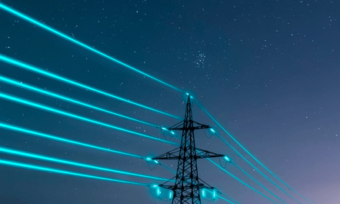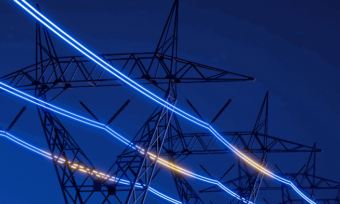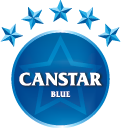Compare natural gas prices in NSW

KEY POINTS
- Currently, our research reveals that Origin Energy, Powershop and Kogan Energy are the cheapest natural gas retailers in NSW.
- There are two gas contract types: market-regulated standard offers, which are regulated, and retailer-designed market offers.
- Whether gas is cheaper than electricity depends on your gas usage and the cost to supply it.
In this Canstar Blue report, we show consumers in New South Wales what they can expect to pay for natural gas in the state. We also share what households should look out for when choosing the right gas deal for them.
New South Wales has more than 1.3 million natural gas customers, and if you’re one of them, you’ve probably noticed that gas isn’t as cheap as it was just a few years ago. Finding a good price on natural gas is no easy task, especially since it feels like most energy companies care more about their electricity customers.
So, to help you better understand your options and see how much you can save, Canstar Blue has put together a list detailing the cheapest NSW gas retailers and how much you can expect to pay. Please note, the price comparison below is based on a specific set of assumptions and one particular location, so treat this as a general guide only.
Cheap gas deals New South Wales
Here are some of the cheapest gas deals on our database for NSW. These estimated annual costs are based on the Jemena Gas Network in Sydney and yearly gas usage of 18,800 MJ/year, but prices will vary depending on your own circumstances. The products are listed in order of lowest estimated price/year (including conditional discounts), then by the highest value rank (out of 10), then by highest brand satisfaction rating. These are products from referral partners†. Our database may not cover all deals in your area, and please check retailer websites for up to date information.
Advertiser Disclosure
Canstar Blue may earn a fee from its Online Partners for referrals from its website tables, and from sponsorship or promotion of certain products. Fees payable by product providers for referrals and sponsorship or promotion may vary between providers, website position, and revenue model. Sponsorship/promotion fees may be higher than referral fees. If a product is sponsored or promoted, it is an ad and it is clearly marked as such. An ad might appear in different places on our website, such as in comparison tables and articles. Ads may be displayed in a fixed position in a table, regardless of the product’s rating, price or other attributes. The location of an ad doesn’t indicate any ranking or rating by Canstar Blue. Payment of fees for ads does not influence Value Rank or Customer Satisfaction Ratings. See How We Get Paid to find out more.
General Disclosure – Energy
The data in the table is updated within 24 hours of Canstar Blue becoming aware of a change. You can find a description of the initial sort order below the table. You can use the sort buttons at the top of each column to re-order the display. Learn more about our Gas Value Rank Methodology.
Please note that the Satisfaction Rating displayed in the table is a rating relating to customers’ overall satisfaction with the brand. It should not be confused with an individual product rating. Learn more about Brand Satisfaction ratings and for more information on how the Brand Satisfaction ratings are calculated, read the Canstar Blue Most Satisfied Customers Methodology.
The results do not include all energy retailers or products in the market and may not compare all features relevant to you. Canstar Blue does not supply electricity or gas services. If you decide to apply for a particular energy product, you will deal directly with the retailer, not with Canstar Blue. Fees, charges, product information and contract terms should be confirmed directly with the relevant retailer.
Some plans may require you to meet certain conditions before a discount may become available to you. Check the energy provider’s plan information for details of all possible discounts that may apply and any conditions that need to be met for you to be eligible for these discounts.
Check your current plan’s exit fees and other termination provisions before changing providers.
Some plans may have a minimum term that is longer than one year. In that case the total cost over the term will be much higher than the estimated Price, which is for one year only. Consider the provider’s detailed product and pricing information before making a decision to take out a new plan or switch electricity providers.
Pricing Information
The price shown is inclusive of GST and is the estimated lowest possible price a representative customer would be charged in a year for each plan, assuming all conditions of discounts offered, if any, have been met. Gas usage assumptions have been derived from the average usages advertised by a selection of retailers in the distribution region as shown at the top of the table.
The general usage assumptions for products displayed in the table have been derived from:
- the average usages advertised by a selection of retailers in the distribution region as shown at the top of the table. The figures provided are intended to serve as general estimates and should be used for information only. If the amount of gas you actually use differs greatly from this estimate, your bill could be significantly larger or smaller than the estimated price/year listed for each plan; or
- if you have provided usage data from your gas bill, the estimated annual amount payable for this plan is based on your individual circumstances.
The estimated yearly Price is based on single rate tariffs, which is when a flat usage rate is charged for ‘blocks’ of gas consumed and could be a limited amount per day, month, quarter, which may include a second block with a different usage rate applied, or, season.
Some plans may have a minimum term longer than one year – in that case the total cost over the term will be much higher than the estimated yearly Price (which is only for one year).
Some plans may apply additional charges to the price shown. Always check the energy provider’s plan information for details of all charges that may apply.
What does the ‘phone’ mean?
By clicking on the number next to the phone icon, you will leave the Canstar Blue website and be connected with the call centre of the Online Partner’s brand that you have selected. You will be subject to that referral partner’s brand privacy policy and terms of use. You agree that Canstar Blue Referral Terms apply to this referral.
Which providers offer the cheapest gas prices in Sydney?
Our price calculations suggest that Origin Energy, Powershop and Kogan Energy are currently the cheapest natural gas retailers in our NSW database. But remember that this is a specific comparison and costs will vary depending on your personal circumstances, including gas usage and where you live.
The majority of NSW households are connected to the Jemena gas distribution network, spanning most of the central and east coast (including Sydney, Hunter and Illawarra) and parts of the inland, including the Tablelands, Riverina and the central west. To offer a guide, we’ve calculated prices based on relatively high gas requirements of 18,542MJ per year. Prices factor in gas usage rates, supply charges and any conditional discounts that are available on the retailer’s cheapest market offer. The following costs should be treated as a general guide only.
Understanding your gas bill
To get the cheapest gas deal possible, you need to understand how you’re charged for natural gas. The two key components to your gas bill are usage charges and supply charges. Depending on your provider and gas deal, there may also be additional discounts, fees and charges.
- Usage charges: The usage rate applies to gas that you actually use and is measured in megajoules (MJ). Some gas plans will charge you the same rate for all gas usage (referred to as a single/flat rate), while other gas plans will charge on a block rate tariff. Customers on a block rate are charged different rates depending on the quantity of gas consumed. When it comes to gas, it is usually the case that you’re charged a lower rate for each block of usage. For example, a customer may be charged 4c/MJ for the first 20 MJ used, 2.7c for the next 20 MJ of usage, and 2.5c/MJ for the rest.
- Supply charges: This is a daily, ongoing fee paid, usually around 60 to 70 cents per day. This is essentially a fee for just being connected to the gas network and applies regardless of how much gas (if any) you actually used. Supply charges can constitute a large portion of your overall bill, especially if you don’t actually use much gas. That’s why it’s important to check the energy price fact sheet to understand the composition of your bill.
- Discounts: Discounts can save you hundreds of dollars on your gas bill, however, you will usually have to meet certain conditions to receive them, such as paying your bills on time or with direct debit. Also be sure to check the energy price fact sheet to see whether the discount applies to both usage and supply charges, or just the usage charge component of your bill.
- Other fees and charges: On a close inspection of your gas bill, you may notice a number of small fees and charges added on top of usage and supply costs. These may be due to a credit card surcharge, late payment fee or a paper mailing fee. If you see an added fee on your bill that you’re not sure of, don’t be afraid to question your gas company about it.
Types of gas contracts in NSW
Just like with electricity, there are two types of natural gas contracts – standard contracts and market contracts.
- Standard contracts: These contracts are regulated by the NSW government, and designed to give customers a fair price for gas with no strings attached. While standard contracts afford customers additional protections, they don’t include discounts and are generally poor value.
- Market contracts: Market contracts are designed by the retailers. They often include discounts and can help customers reduce their overall costs, provided the conditions are met. The biggest drawback with market contracts is that your gas retailer has more freedom regarding when and how it can change your rates. The discounts also don’t usually last forever, so customers on a market deal should compare gas retailers at least every 12 months.
What’s cheaper: electricity or gas?
It is a widely-held view that natural gas is cheaper to use than electricity. A kWh of electricity in NSW costs about 24 cents, while that same amount of energy in gas only costs about 6 to 9 cents. However, the choice between electricity and gas becomes a little more complicated when you factor in the supply charges.
If you have a gas connection, you’re charged a daily fee of around 50 to 65 cents in addition to your electricity supply charges. So, while natural gas usage rates are often quite cheap, supply charges create a situation where gas will only be worthwhile if you have moderate to high gas usage. Gas will almost always be more affordable for high-usage appliances like hot water systems and heaters, but if your only gas appliance is a gas cooktop, then consider if you could save by switching to an electric cooktop.
Which gas retailer is rated highest in NSW?
The natural gas that cooks your dinner and heats your water is the same gas regardless of who your gas retailer is, so you should just pick the cheapest supplier, right? Sure price is important, but other factors also play a part in how satisfied you are with you energy provider. The cheapest deal is not always the best if you’re getting poor service. That’s why Canstar Blue produces an annual review of gas suppliers in NSW, to find out which are rated highly for customer service, as well as price. Check out our NSW gas ratings and find out which electricity provider has the happiest customers via the link below.













